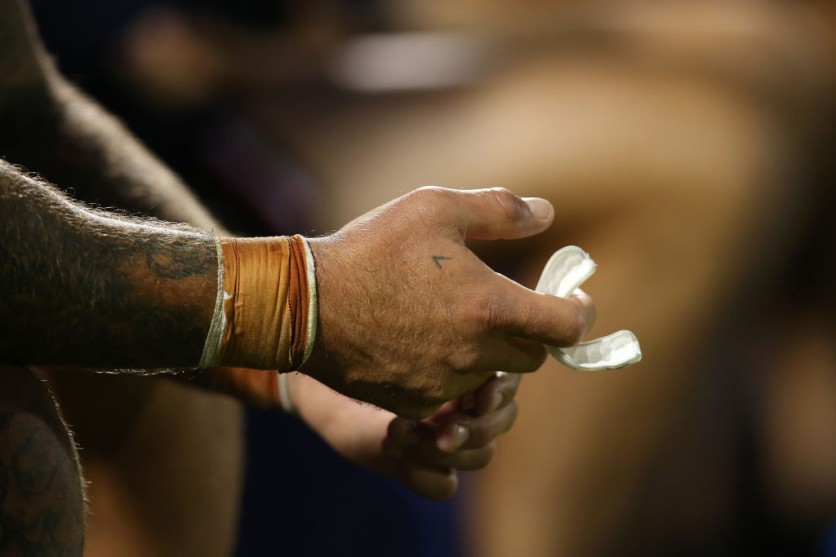World Rugby has invested more than $2 million for these innovative smart mouthguards. This wearable tech will be adopted in professional rugby to help flag major head injuries.

World Rugby Implementing Smart Mouthguard Technology
Eanna Falvey, Chief Medical Officer at World Rugby, underscored the significance of this move. He stressed the importance of reducing head impacts for players across all levels of the sport.
Falvey also highlighted the advancements in smart mouthguard technology will mean "elite players will be better cared for than ever before." Sky News reported that this transition marks a shift from medical research to everyday performance management, solidifying World Rugby's commitment to prioritizing the players' welfare.
This innovative development represents one aspect of a broader set of recommendations by World Rugby's independent Concussion Working Group. The group advocates for the use of mouthguards by all players across every level of the sport.
This recommendation stemmed from prior studies in ice hockey, which have shown that while protecting against tooth damage, mouthguards can also reduce concussion risk by up to 20%.
The origin of these suggestions can be traced back to the group's assembly in Boston, Massachusetts, earlier this summer, during which it had the privilege of hosting esteemed experts.
In the revised World Rugby's guidelines governing the return of a rugby player after a concussion, a player will now have to sit out for a minimum of 21 days before the player can return to a match.
These adjustments to World Rugby's stance on long-term neurodegenerative diseases and the cumulative impact of head injuries are parts of a new phase of global player welfare measures.
This update emphasizes the importance of considering concussions and the forces exerted on the head, which may not necessarily lead to immediate medical symptoms.
World Rugby Ensuring Players' Safety
World Rugby said the smart mouthguards will initially be used in the inaugural edition of the global women's competition, the WXV, this month and integrated into the head injury assessment (HIA) process starting January next year.
Because of this, rugby players will be required to wear mouthguards during training and matches. World Rugby noted that this move would allow coaches "to better tailor drills, tackle skills and training load for each individual player, and best support their performance and welfare."
Much like other contact sports, rugby exposes its players to the risk of head injuries, particularly concussions. A concussion, a form of traumatic brain injury (TBI), occurs when an individual sustains a blow to the head, leading to an impairment of brain function.
In rugby, numerous scenarios, such as tackles, collisions, or unintentional head impacts, can result in concussions. Identifiable through symptoms like confusion, vertigo, headaches, memory disturbances, and altered consciousness, concussions require swift detection and treatment to prevent potential long-term harm.
The global governing body for rugby, World Rugby, is addressing this concern by introducing smart mouthguards for all its players. Interesting Engineering reported that these innovative devices are equipped with technology designed to facilitate the early detection of head injuries, including concussions.
Rugby, a sport that prioritizes player safety, has been consistently striving to reduce the occurrence of head injuries. These efforts encompass rule changes, enhanced player education, and advancements in safety equipment to minimize injuries and work toward their prevention.
The relationship between rugby and chronic traumatic encephalopathy (CTE), a neurodegenerative condition associated with repetitive head trauma, remains the subject of ongoing research. However, the league is committed to safeguarding its players against such conditions.
Related Article : Teen Rugby Players Suffer Injuries Normally Seen In Car Crashes

ⓒ 2026 TECHTIMES.com All rights reserved. Do not reproduce without permission.




